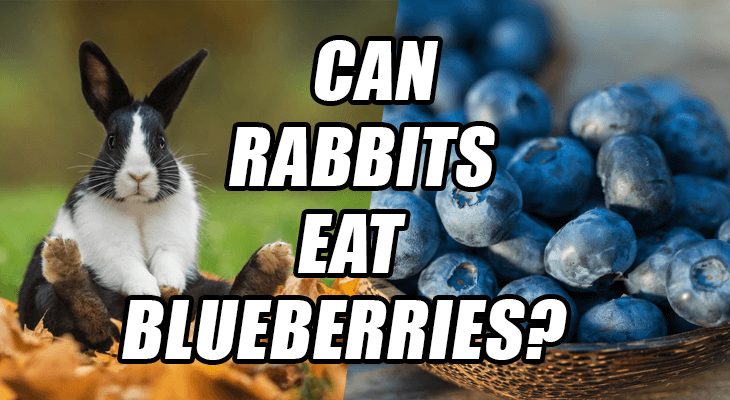With their iconic long ears, twitchy noses, and the way they hop around, rabbits really do melt your hearts. And you want to do everything in your power to keep them healthy and in your life for as long as possible. This isn’t really a difficult task because, for most of the part, you need to monitor your furry friend’s diet. Animals have certain requirements in terms of nutrition which isn’t hard to fulfill and similarly, some foods can be toxic for your furry friend and simply need to be avoided. We’ve compiled a list of foods you can feed your rabbit to make things easy for you!
A Rabbit’s Diet:
Pet rabbits, if taken care of properly, can live up to 12 years. And to ensure your rabbit lives that long you need to know what a rabbit’s diet should consist of. Contrary to popular belief, rabbits actually do need to eat more than just carrots and lettuce. So what exactly do they eat?
Hay:
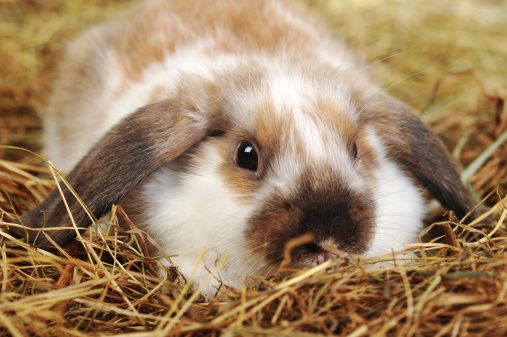
Your rabbit’s primary food source is hay. Since rabbits are grazing animals hay is a vital part of their diet. You should feed your rabbit grass hay and good options of grass hay include oat hay, orchard grass, and brome. You can feed your furry friend either or a mixture of different hay just as long as they have fresh and an unlimited daily supply. Make sure there’s no dust or mold on the hay because that’ll only cause your rabbit to fall ill.
You should avoid feeding your rabbit Alfalfa hay mainly because it isn’t grass but a legume and thus is too rich for their daily diet. It is more suitable as a treat.
Vegetables:
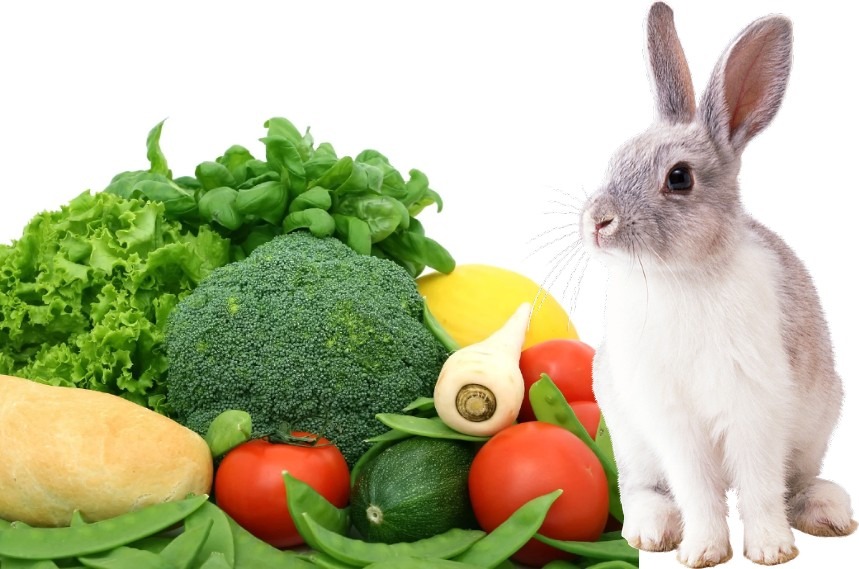
Some of your rabbit’s favorite food is vegetables and herbs and most vegetables available in the market are safe for your pet, except for a few that we’ve mentioned below. However, do not overdo the vegetable quantity you feed your rabbit. Ideally, your adult rabbit needs no more than two cups of vegetables daily. You should add a variety of two different vegetables. However, you should always add one vegetable at a time to make sure that it suits your rabbit because they have a digestive system that is delicate and can end up with loose stool.
Vegetables that can be fed daily include:
- Bell peppers
- Brussels Sprouts
- Carrot tops
- Cucumbers
- Lettuce
- Herbs such as basil, cilantro, parsley, and rosemary
Vegetables that should be fed occasionally, once or twice a week at best:
- Broccoli
- Carrots
- Kale
- Spinach
Fruits:
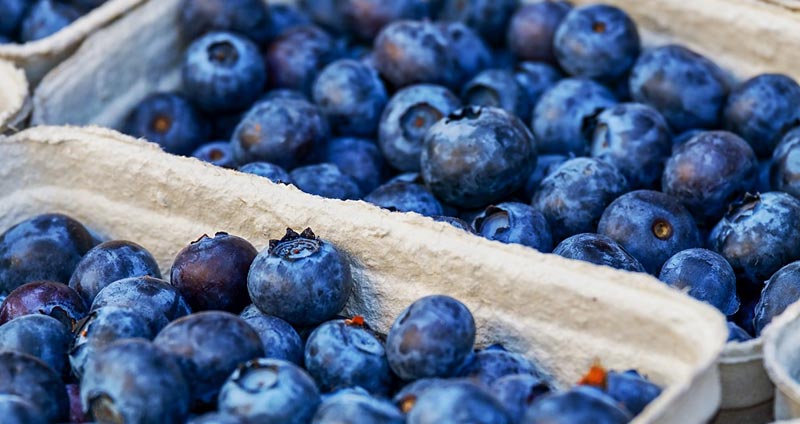
It is advised to feed your rabbits fruits sparingly, once or twice a week at best. For a 5 pound rabbit, one or two tablespoons of fruit are ideal. It can be a single fruit or a mixture. Similar to how you introduce vegetables to your rabbit, fruits should be introduced slowly and should be monitored if they suit your pet.
Fruits safe for your rabbit include:
- Apples without seeds
- Bananas
- Cherry without seeds
- Grapes
- Papaya
- Peaches
- Melon
- Berries which include strawberries, blackberries, blueberries, raspberries
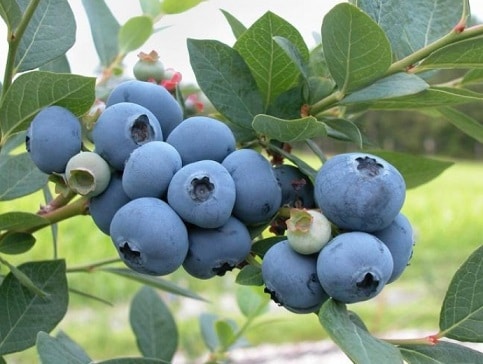
Treats:
Rabbits have a sweet tooth, however, that doesn’t mean they should be given lots of treats. In fact, treats should be occasional. Healthy treats for your rabbit include small pieces of fresh or freeze-dried fruit. You can also feed your rabbits dried flowers as a treat. Always avoid feeding your rabbit treats rich in sugar, artificial coloring, and preservatives. Human treats should be avoided at all costs.
Foods to avoid giving your rabbit completely:
- Beans
- Cabbage
- Cauliflower
- Walnuts
- Pasta
- Iceberg lettuce
- Chocolate
- Cereal
- Potatoes
- Crackers
- Meats
Things to remember when feeding your rabbit blueberries and other seed-based fruit:
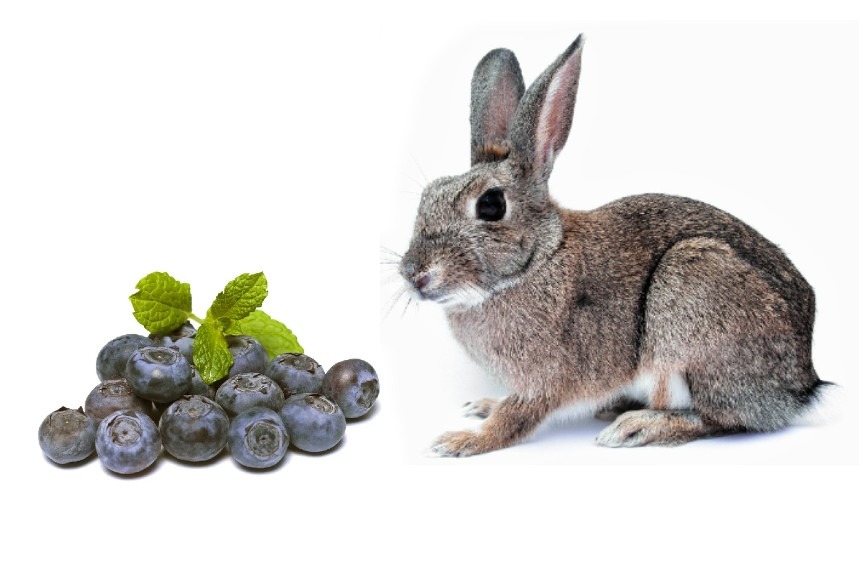
One major fact you need to remember while feeding your rabbit, especially when you feed it fruit, is to make sure there are no seeds in the fruit. Common fruits you have lying around at home such as strawberries and blueberries are tempting to feed your rabbit. However, they aren’t necessarily safe. Strawberries have seeds on their sleeve and similarly, blueberry seeds can go unnoticed and your rabbit can end up eating them. Although blueberry seeds are too small to cause an issue in your rabbit’s digestive tract, if too many are swallowed that may become an issue.
If you do feed your rabbit blueberries you should know that the seeds are located in the center of the fruit so make sure you de-seed them before feeding them. However, that might not always be an easy task. After deseeding, the blueberry might not remain in one piece and you’ll be left with blueberry pulp which your rabbit might not accept.
FAQS:
Do blueberries have any nutritional value for my pet rabbit?
Blueberries aren’t a natural part of your rabbit’s diet. However, they do have any health benefits. They are rich in antioxidants as well as minerals that promote cell repair as well as brain health. Plus they have a low glycemic index which means they won’t make your rabbit hyperactive after they munch on them.
In what forms can I feed my rabbit blueberries?
You can give them fresh blueberries either store purchased or homegrown. Make sure they are cleaned and have been removed from stems and leaves. Dehydrated and dried blueberries can also be given. These berries have 90% of their water drained out of them and can easily be done in a food processor. Your rabbits will enjoy the change in flavor. However, dehydrated blueberries have higher sugar quantities and thus should not be fed frequently.
Do not feed them blueberry jam though! Jam has too much sugar and not enough nutrients and contains lemon juice and pectin which aren’t good for your rabbit.
Conclusion:
We weren’t joking when we said it isn’t a difficult task to maintain a healthy diet for your rabbit. You’ll find they are relatively low maintenance and with a little TLC, they’ll be by your side for years to come.
